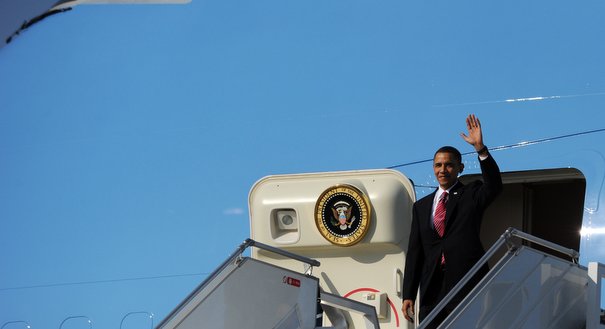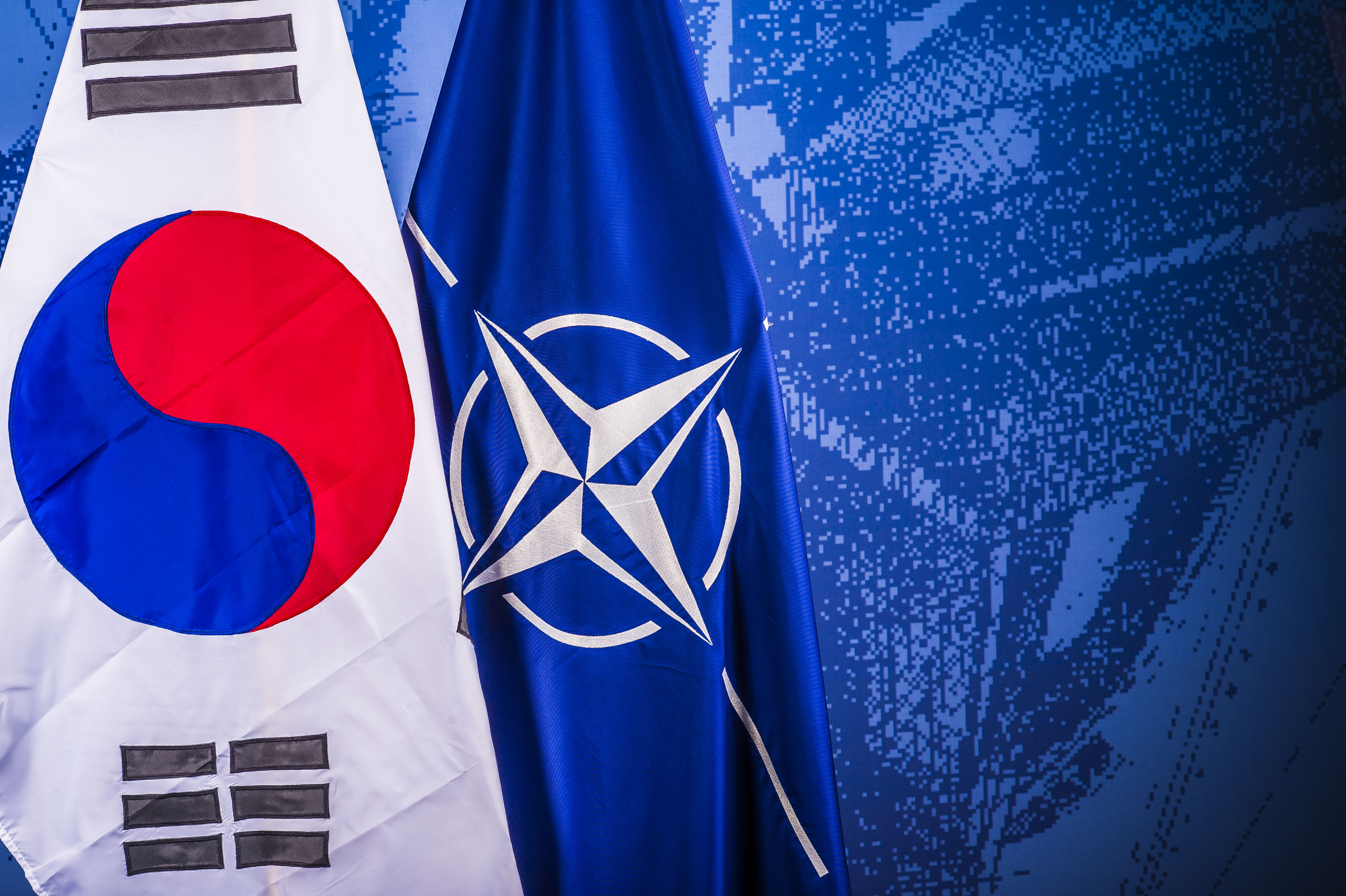On his upcoming trip to the Middle East, U.S. President Barack Obama will make his first visit as president to Israel, the West Bank, and Jordan. In a Q&A, Marwan Muasher analyzes the issues that will shape Obama’s visit.
Muasher argues that Iran and Syria will likely dominate discussions despite the urgency of the Arab-Israeli conflict. But the longer Washington waits and puts forward half measures on the peace process, the more damage is done to its interests and reputation in the Arab world.
How significant is Obama’s trip to the Middle East?
It’s unclear at this stage how important it will be, leaving many people questioning why Obama is making the trip now.
The administration says the trip is not designed to spark a major breakthrough in the Israeli-Palestinian conflict. If that’s the case, then the visit is much more about discussing with Israel how to contain the Iranian nuclear program and handle the Syrian crisis.
How is this trip different than his first trip to the region as president in 2009?
A lot has changed since then.
Obama’s 2009 speech to the Muslim world in Cairo raised expectations across the region. Then, a largely stable Arab world was hopeful that the United States would work to heal deep divisions and that Obama himself would throw the weight of his office behind finding a solution to the Arab-Israeli conflict.
Now, Obama visits a region in turmoil that doesn’t expect much from the United States. The Arab Awakening broke out over two years ago, and while some countries are undergoing transitions toward democracy, the process has been anything but easy.
The Obama administration took an early position on the side of change in Egypt, Tunisia, and elsewhere. But it has not yet been clear about how it will support the ongoing process across the Middle East, particularly when democratic openings conflict with immediate U.S. interests as seen in Bahrain. And people are still waiting to see how Obama will deal with countries that have not undergone transitions, notably the Gulf states.
Will any progress be made on the peace process?
The peace process is low on Obama’s list of priorities, and there are no indications that Washington will make any concerted effort to find a solution to the Arab-Israeli conflict.
The administration’s stance is that Obama is visiting Jerusalem and the West Bank to listen, but that isn’t very convincing. There is very little—if anything—that the United States doesn’t understand about the situation after decades of diplomacy.
When Obama emerges on the other side of the wall in the West Bank, he will see the conditions Palestinians live with under occupation. This vivid image should leave a lasting impression with the president—and demonstrate the urgency of the situation.
The time for listening is over—now is the time for real movement. Obama has two options: either focus on other issues or set the stage for a bold initiative. Half measures will only make things worse.
But waiting for another time is a mistake. There is a window of only a few months until the hope of a two-state solution is lost for good.
The best option is for the trip to include behind-the-scenes diplomacy that will lay the groundwork for reaching a breakthrough. Unfortunately, it doesn’t look like that will happen.
How strong is Obama’s relationship with Israeli Prime Minister Benjamin Netanyahu?
It’s no secret that Obama and Netanyahu have had a rocky relationship over the years. In fact, Obama doesn’t have strong personal ties with any individual leader in the Middle East.
It’s important for him to develop these relationships in a region where personal diplomacy means a lot. Both Obama and Netanyahu will look to mend personal ties and give a positive impression during the visit.
Netanyahu is not in a strong position today. He is likely to form a new government after January’s elections only days before Obama arrives, so he will be looking to avoid heated debates on the conflict with the Palestinians.
Netanyahu will want to focus on Iran and to a lesser degree Syria—but spend as little time as possible on the peace process. Obama does not look ready to nudge the two parties on the peace process if they are not willing to take the initiative themselves.
This is a trip that will produce very little, if anything, beyond rhetoric on the peace process.
Do Obama and Netanyahu agree on the best way forward on Iran?
No. It is becoming increasingly clear that Israel cannot stop Iran’s nuclear program with a military strike. At best, this would only delay the program by a couple of years. Israel’s preferred strategy is therefore a U.S. strike on Iran.
But a U.S. attack is not that simple.
There has not been a serious public debate about the day after a U.S. strike. Will hitting Iran stop the program or ensure that the Iranians decide to weaponize? Will a strike benefit the region or strengthen the extremists at the expense of the moderate voices in the Arab world? Will it weaken Iran or resurrect it from the dead in the Arab world where it has lost a lot of popularity because of its support for the Syrian regime? These are questions that need to be seriously debated.
The strike will also drive up the price of oil. The capacity for Gulf states to export oil without relying on the Iranian waters in the Strait of Hormuz is extremely limited, so the risk of a global economic crisis is very real.
This means that Obama is likely to stay the diplomatic course regardless of how hard Israel pushes Washington to strike. And this is the right decision. Sanctions need to be continued and work needs to be done to try to find a diplomatic solution.
Are Israel and the United States doing enough on the Syrian crisis?
At the beginning of the Syrian crisis, the Israelis were not particularly interested in the Assad regime falling—the country was stable and kept their shared border largely quiet. There was a fear that a change could bring more radical elements into positions of influence in Damascus.
But the conflict’s escalation has led both Israel and the United States to look for ways to contain the rise of radical rebels inside Syria.
U.S. policy is to change the regime while maximizing the chances that a moderate government will take its place. This is not exactly Israel’s policy. Some people believe that it is in Israel’s interest for the present stalemate to continue indefinitely, leaving a weak Syria that is unable to threaten Israel’s security. If one accepts that there is an element of truth in this, then Obama and Netanyahu will not see the situation exactly the same way.
Regardless, something needs to be done to break the military stalemate and force a political transition that will lead to a new regime before the country is destroyed.
The argument against direct military intervention in Syria is understandable. But the idea that giving weapons directly to opposition forces is problematic because arms may fall into the hands of radical groups needs to be weighed against the real possibility that prolonging the conflict increases the chances of extremist groups assuming power.
How important is Obama’s stop in Jordan?
This is an opportunity for Obama to develop a personal relationship with a key Arab leader.
Jordan’s leaders may be looking for the Obama visit to serve as a reaffirmation of their policies. Jordan feels pretty comfortable right now. Protests have calmed down and many observers think the leadership has successfully weathered the storm of the Arab uprisings given that government loyalists came out on top in the country’s recent election for the lower house of parliament.
Both sides will emphasize the need for a sustained and gradual reform process from above. Regardless of what the administration privately feels, I think Obama’s public statements will be very supportive of the reform process in Jordan. The administration will not push for any accelerated process.
How can Obama improve America’s standing in the Middle East?
Obama will need more than a well-worded speech if the United States hopes to repair its image in the Arab world. People in the region want action, not talk.
Of course, it’s unclear how much the international community can help a process that is undergoing unavoidable ups and downs. After all, U.S. economic power is reduced without an unlimited source of funds to offer the region, its military power is questioned after the Iraq war and troop withdrawal, and its political power is on the wane given its unwillingness to take a proactive role in the Arab-Israeli conflict.
If Obama really wants to improve America’s standing in the Middle East, he needs to make a real effort to break the deadlock in the peace process. Washington can’t tell most Arabs that it stands with them in their quest for freedom but tell Palestinians that their conflict with the Israelis is too complicated to fix right now. That message is inconsistent and will not resonate in the region.













